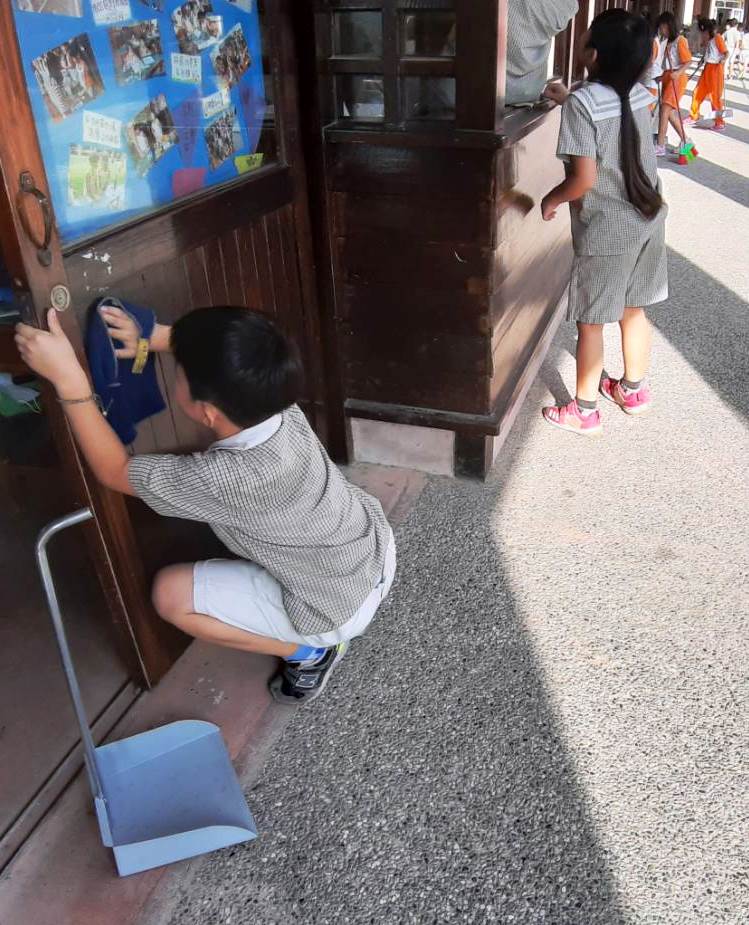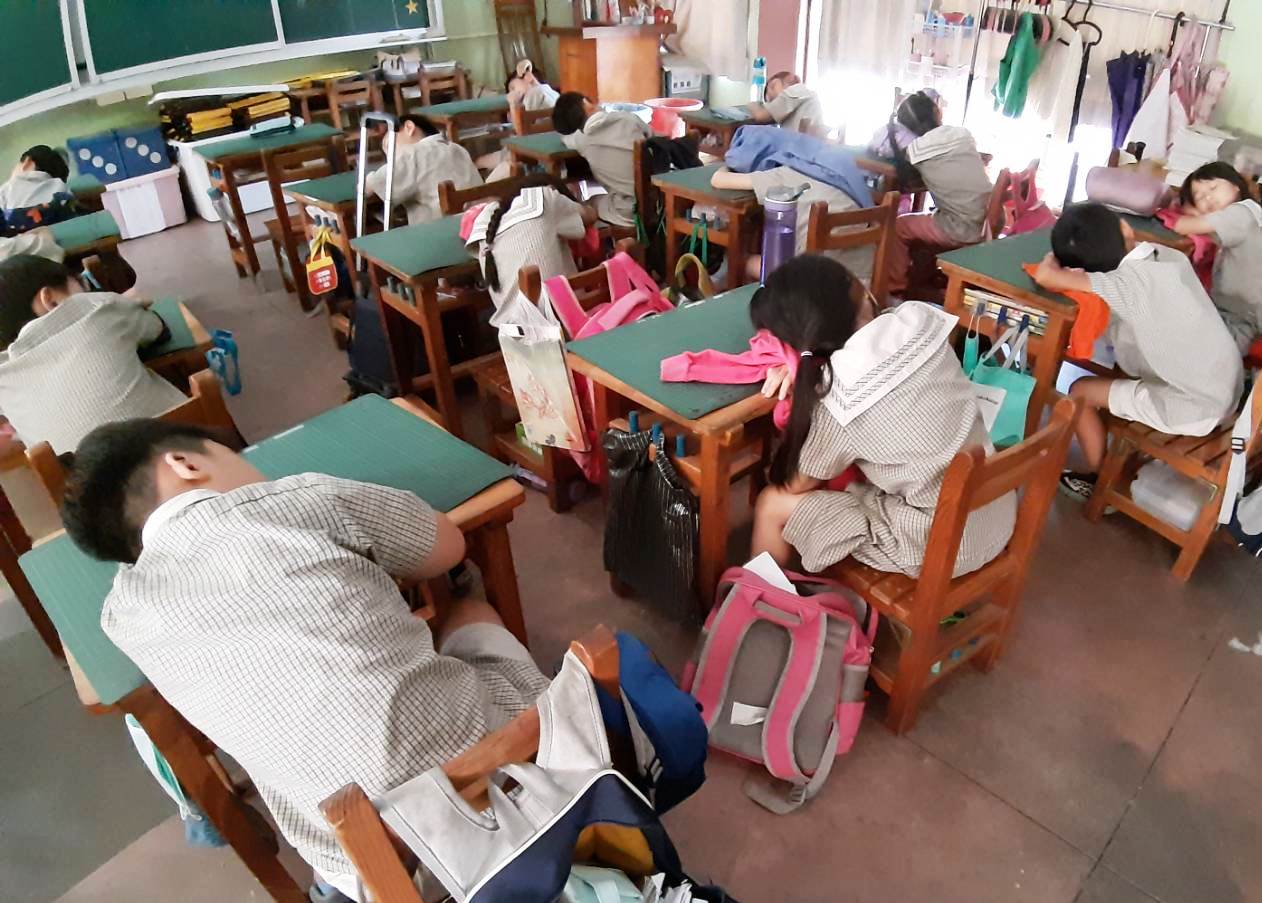I spent all of my kindergarten, primary, secondary, and high school years in France. When I went to Mainland China and Taiwan for the first time for my two exchange-student years, I had the chance to meet not only a lot of local students but also many foreign students from all over the world. One thing we loved to do was to learn about each other’s culture and discover how different things can be from a country to another. Something that particularly surprised me is some anecdotes my local friends shared with me about their life at school. So I decided today to share with you 10 facts about Chinese schools that can be kind surprising for westerners.
1. Cleaning duties on a Daily basis
It is common for Chinese students to take care of the environment they are studying in, so forget about janitors. In China and Taiwan, students all take a duty to swipe, mop, wipe, clean the windows, hallways, toilets, and even the sidewalks outside the school or their teachers’ desk. In some schools, you can also see students serve meals to their classmates. This teaches them not only cleanliness but also teamwork, a good example for some western countries.

2. Morning and evenings self-study sessions before and after class
Classes tend to last longer on a daily basis than in western countries (around 8 hours a day). After a morning warm-up and a general line up in the yard, students go to their class and start a morning self-study session (called 早自修zǎo zìxiū). At the end of the day after class, they like to enjoy some free with their classmates before going back to class to start their evening self-study sessions.
However, parents usually like to send their kids to remedial classes hold by teachers (called 补习班bǔxí bān) instead of evening self-study sessions. This way they can improve even better.
Self-study sessions may be too much after a whole day of having class, but some students actually enjoy it since they can hang out with their classmates more and secretly play some games.
Read More: What Is Gaokao: A Look At China's Most Important Exam?
3. No central heating in approximately half of the Chinese schools
This usually occurs in the south of China. Schools, like apartments, are not equipped with central heating. Thus, during winter, teachers and students all wear coats and other winter clothes.
When I was studying in Chongqing, it was common to have a class with jackets and scarfs. Fortunately, all classes in China have AC, meaning the temperature in classrooms during summer was very bearable.
4. Squatting toilets almost everywhere
Especially in the west of China. If you happen to study in China one day and don’t want to squat, don’t worry, you can still find some “western toilets”.
However, there are even some studies showing that squat toilets are better for the body (since humans are supposed to squat when taking a number two) and more hygienic since your bottom and legs don’t touch anything.
Read More: 13 Very Surprising Things I Discovered When First Coming To China
5. Daily after-lunch naps
The first time I came to Taiwan as an exchange student, I had most of my classes with local students and it was quite a surprise to see everyone sleeping on their desks for around twenty minutes before the afternoon classes start. What was amazing to me is how they could fall asleep so fast in such an uncomfortable position. Funny thing is that after a few months, I started to do the same, and I directly felt more productive and less tired during afternoon classes.

6. INDEPENDENCE from a very young age
It is normal for parents to want to send their kids to good schools, but sometimes, these good schools are far from home. Thus, when it is time for the students to go to high school, some parents rent or buy an apartment for them near their new school.
Consequently, these students start to live independently on their own (although they still have financial support from their parents).
7. Photocopy of teaching materials
It is known that teaching materials may sometimes be expensive, and students sometimes can’t afford them. When I was in Chongqing, the teachers would pick a student to be in charge of copying the books for each student.
This is something completely illegal in France, but it was very common where I was studying in China. It is extremely cheap to copy teaching materials since you have photocopy services everywhere in and near the campus.
8. Respect towards the teachers
Chinese students are very respectful. When Chinese students recite, they stand; when students hand in a paper, they use both hands as if they were making a presentation of the paper to the teacher; when students refer to their teacher in writing, they often use terminology such as, “Our dear teacher”.
They know from a very young age how to do well in life and how to be an adult. University students, when asked to recall their middle school and high school years often speak of their teachers in very exalted ways telling how much their teachers meant to them.
9. Uniforms until high school
Like in the UK, uniforms are mandatory in schools, and every school has its own uniform style. Since I live in Taipei, I can see every day in the metro students wearing stylish uniforms to go to school.
Sometimes by school policies they have to stitch their names on the uniforms too.
Read More: What Is A Qipao?
10. The numerous leader positions
In France, I used to have a class leader every year and that was all. In China, there is a not only a class leader, but also a sports leader, a discipline leader, a secretary leader, a cleaning leader, and it goes on and on. Being in a Chinese school is like being part of a community and makes the student experience completely different from most western countries.

If you want to go to China to study a degree or to be an exchange student for a year and want to learn or improve your Chinese skills, try our online free class with our certified teachers. It can be a huge help before taking the big step. We offer personalized Chinese courses to students from all around the world. Also, if you have an interest in the Chinese language and culture, don’t hesitate to follow us on Facebook and Instagram.
Want To Learn Chinese? Join Tutorabc chinese to learn more!
